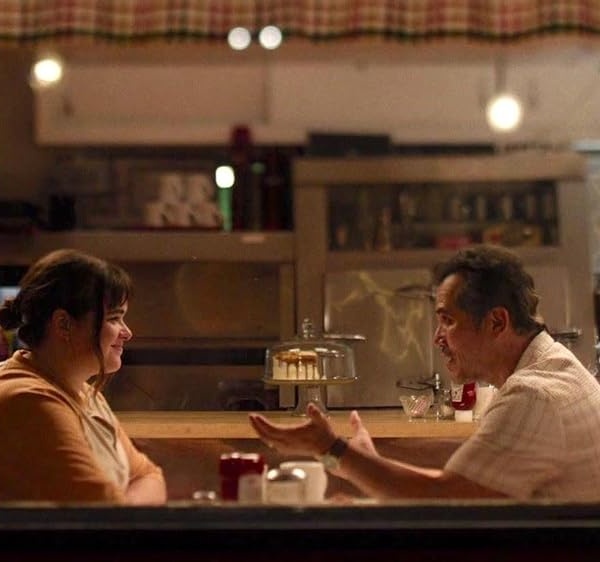In a sea of formulaic documentaries about every true crime story under the sun, “Black Box Diaries” differentiates itself with one big decision: It is not only guided by its central sexual assault survivor, but also directed by her. That means that many of the typical, tiresome true crime tropes — waterfalls of sensationalist soundbites, talking head interviews with experts, a manipulative structure that deliberately withholds key pieces of information — go out the window in favor of intimate time spent alongside the story’s young heroine, Shiori Ito.
Unspooling chronologically, the film, which premiered at Sundance last year, opens on a trigger warning for themes of sexual assault before cutting to its director in a front-facing cellphone video. Speaking into the camera, Ito says that, as a journalist, she feels the need to document what’s happening to her, both as a form of self-protection and as a quest for truth. At this point, we don’t know the contours of Ito’s story. But before the title card plays, we receive two clues that tell us almost all we need to know: an interview with the cab driver who picked Ito up on the night of the alleged attack; and CCTV footage of Ito and a man entering the hotel where the incident took place. In the second clip, the man pulls Ito out of the cab before holding her upright as she stumbles inside.
In 2017, Ito, then 28, became a public figure in Japan after she held a press conference accusing Noriyuki Yamaguchi, a well-known television journalist, of raping her two years earlier. She had been meeting Yamaguchi to discuss a job opportunity, she said, when she started feeling dizzy at dinner. The next thing she remembers is waking up in Yamaguchi’s hotel room as he was raping her. (Yamaguchi has denied the allegation.)
The film chronicles the handful of years that followed, with Ito serving by turns as traumatized victim, persevering reporter, and #MeToo movement crusader. In small moments captured by Ito and her friends, Ito monitors a mysterious van parked outside her window, uses a wiretap detector on her home, and begins work on a memoir — titled “Black Box,” after a term that a prosecutor used to describe the “unknowable” events that occurred in the hotel room — chronicling her experience. Much of this footage is casual in tone, or even lighthearted. In one early scene, Ito sits at dinner with her roommate, who chuckles as she describes Ito awakening to nightmares and needing to be rocked back to sleep like a baby. The pair gently joke about her situation, although darker themes of PTSD underlie the cheer.
These intimate moments are juxtaposed a bit awkwardly with scenes depicting Ito as a journalist investigating her own ordeal. In one sequence, Ito tries to get a comment from the police chief who she believes was responsible for calling off Yamaguchi’s arrest after she reported the incident. Perched in a van outside his home one morning, Ito and a camera crew rush out to ambush him, only to chase down his car as he peels away. Ostensibly meant to imbue the story with intrigue, the scene instead feels almost amateurish, telling us little about Ito beyond her ambition to become a dogged investigative reporter.
But the film redeems itself once its larger emotional arc comes into focus. In a moving and almost startling departure from many stories of this sort, Ito evolves over the course of the film not to be more emotionally stable, but less, collapsing more and more frequently into waves of weeping or exhaustion so great she cannot help but fall asleep on the spot. In the beginning, Ito explains, she was able to distance herself from the facts of the case by viewing them from a journalistic perspective. As she opens a civil suit against Yamaguchi, however, she must transition into embodying the more painful role of victim. Suddenly, the film’s earlier chase sequence is thrown into sharp relief: Shoving a microphone into the police chief’s face wasn’t merely a slick reporting maneuver, but a coping mechanism for trauma.
Ito breaks up her first-person footage with more deliberately composed shots of buildings and people around Japan, including a memorable sequence depicting rows of identical windows on austere Japanese buildings. The severity of the structures bespeaks a broader theme: the Japanese hierarchies working overtime to protect those in power. That idea extends to Japan’s regressive laws around sexual assault, which Ito wisely uses to put her case into a broader context. But for the most part, “Black Box Diaries” — per its title — is a personal testimony of a stressful journey, illustrating how survivors struggle, cope and find relief in support.
Grade: B+
An MTV Documentary Films release, “Black Box Diaries” opens in theaters on Friday, November 1st.







